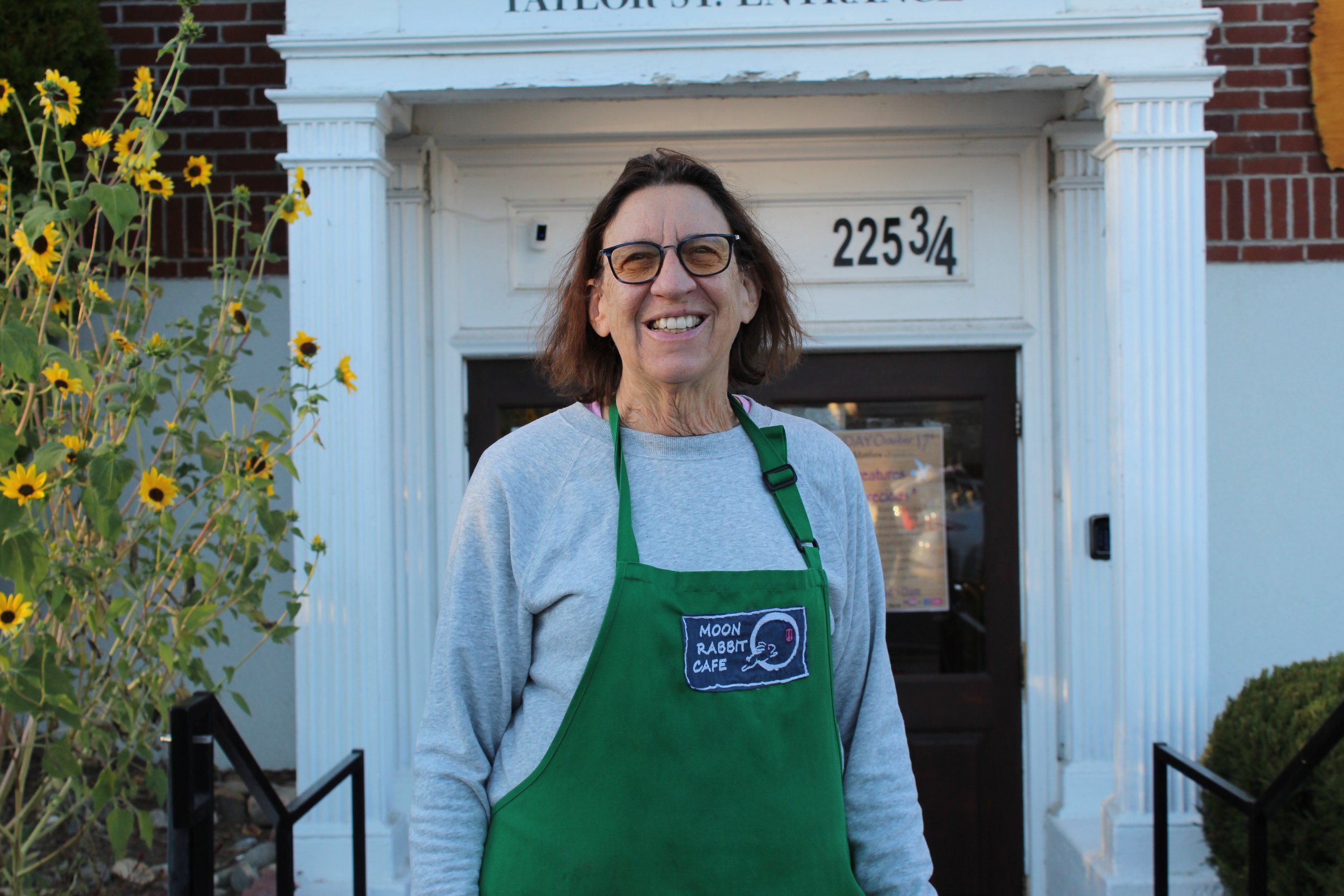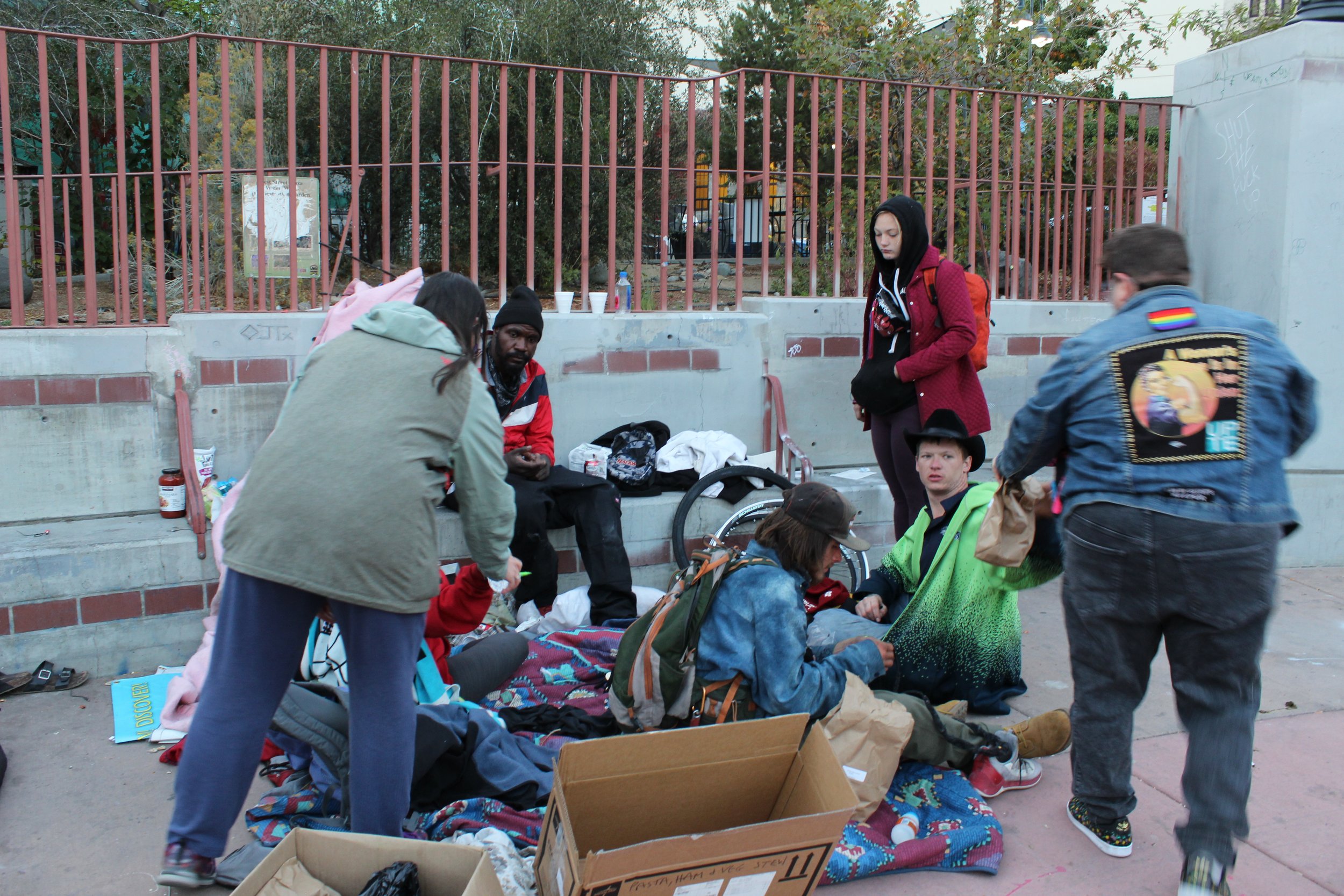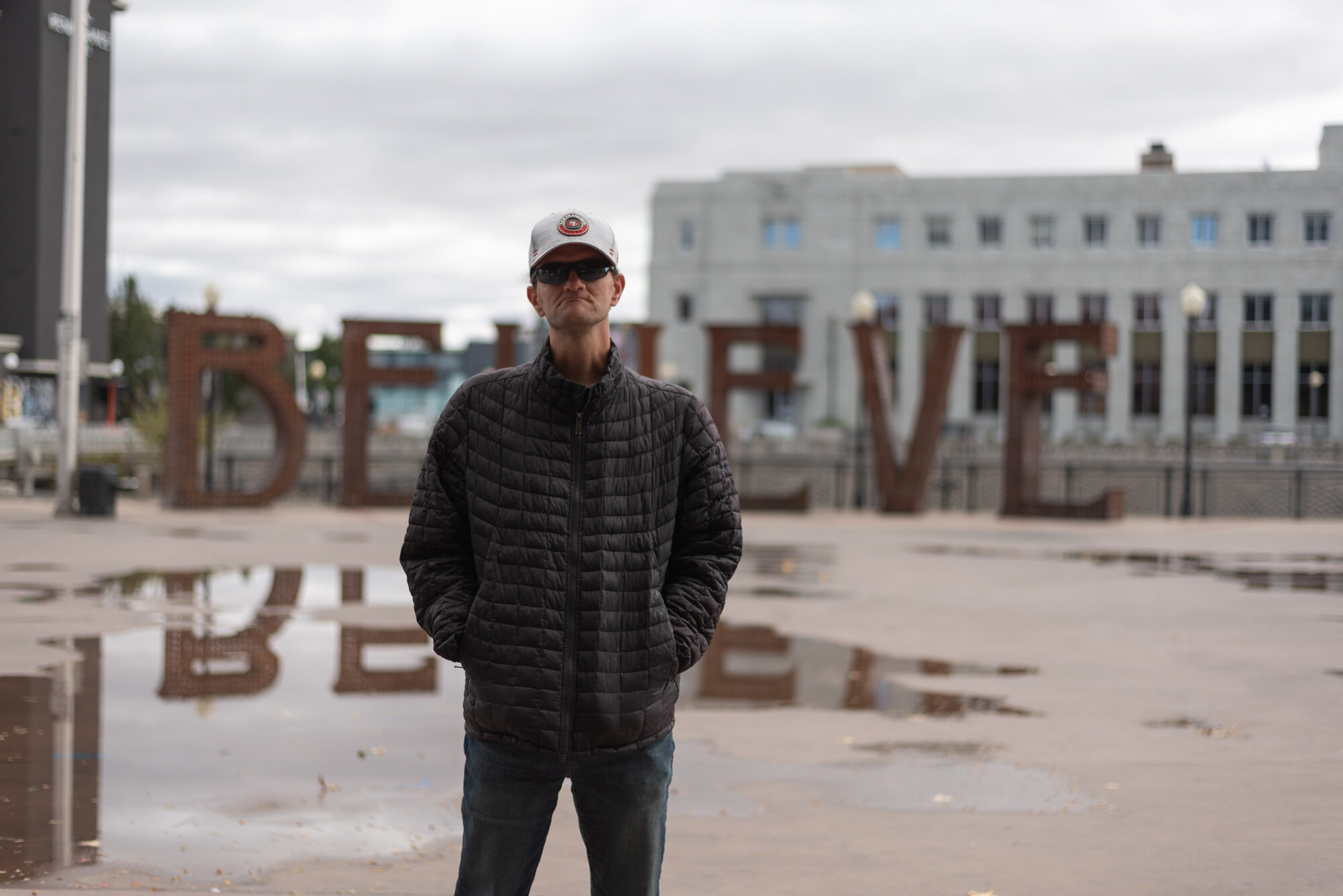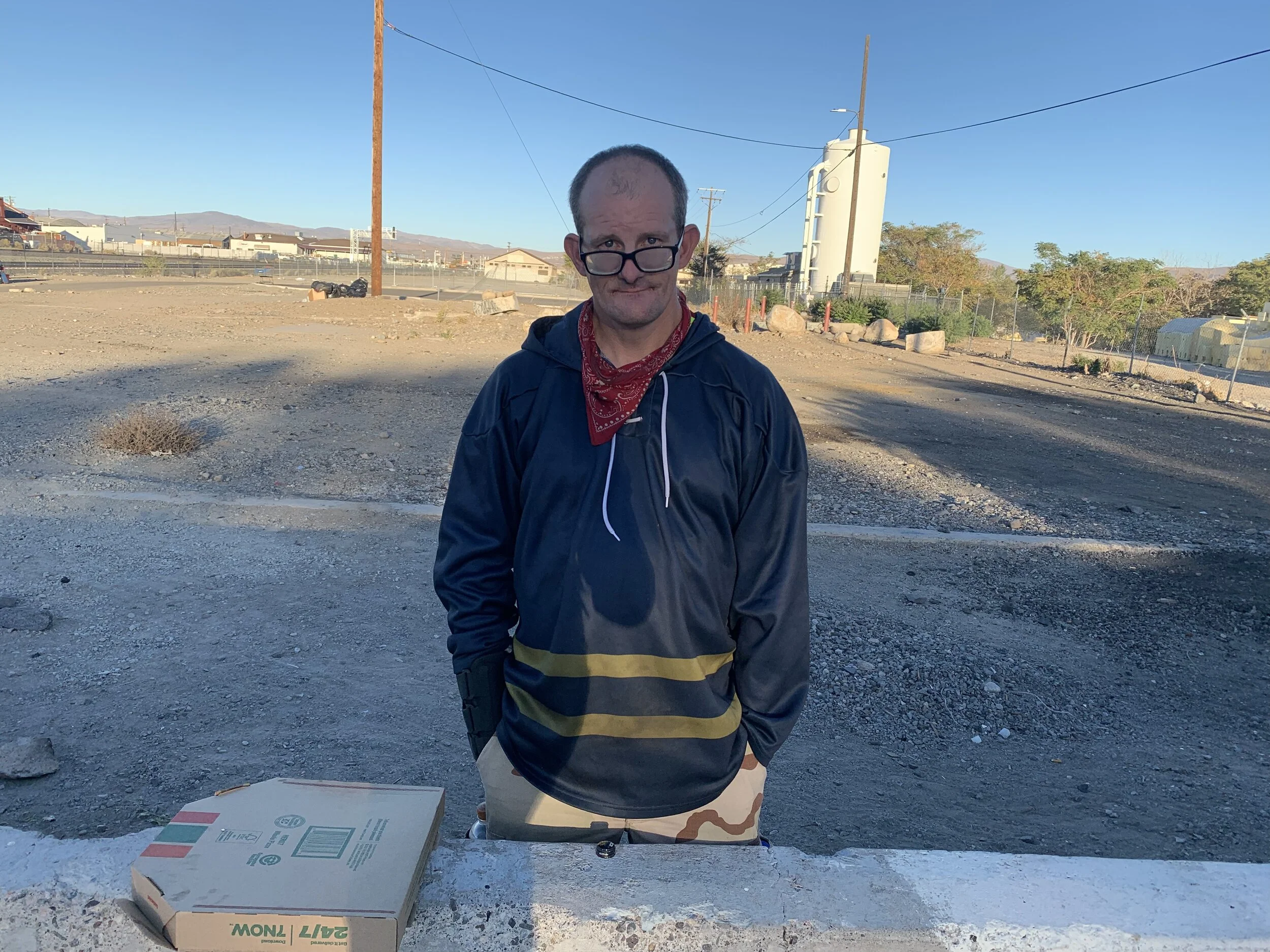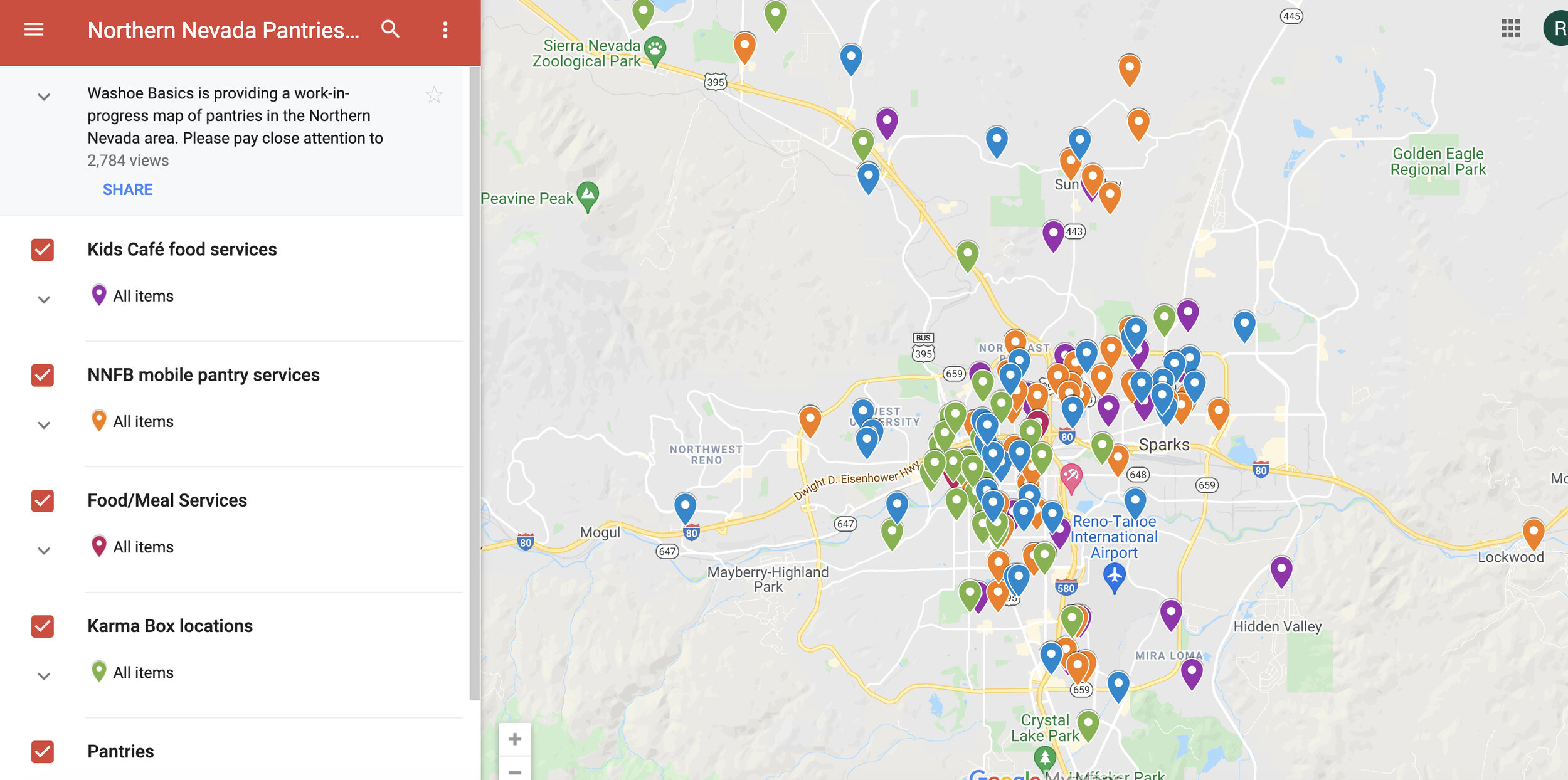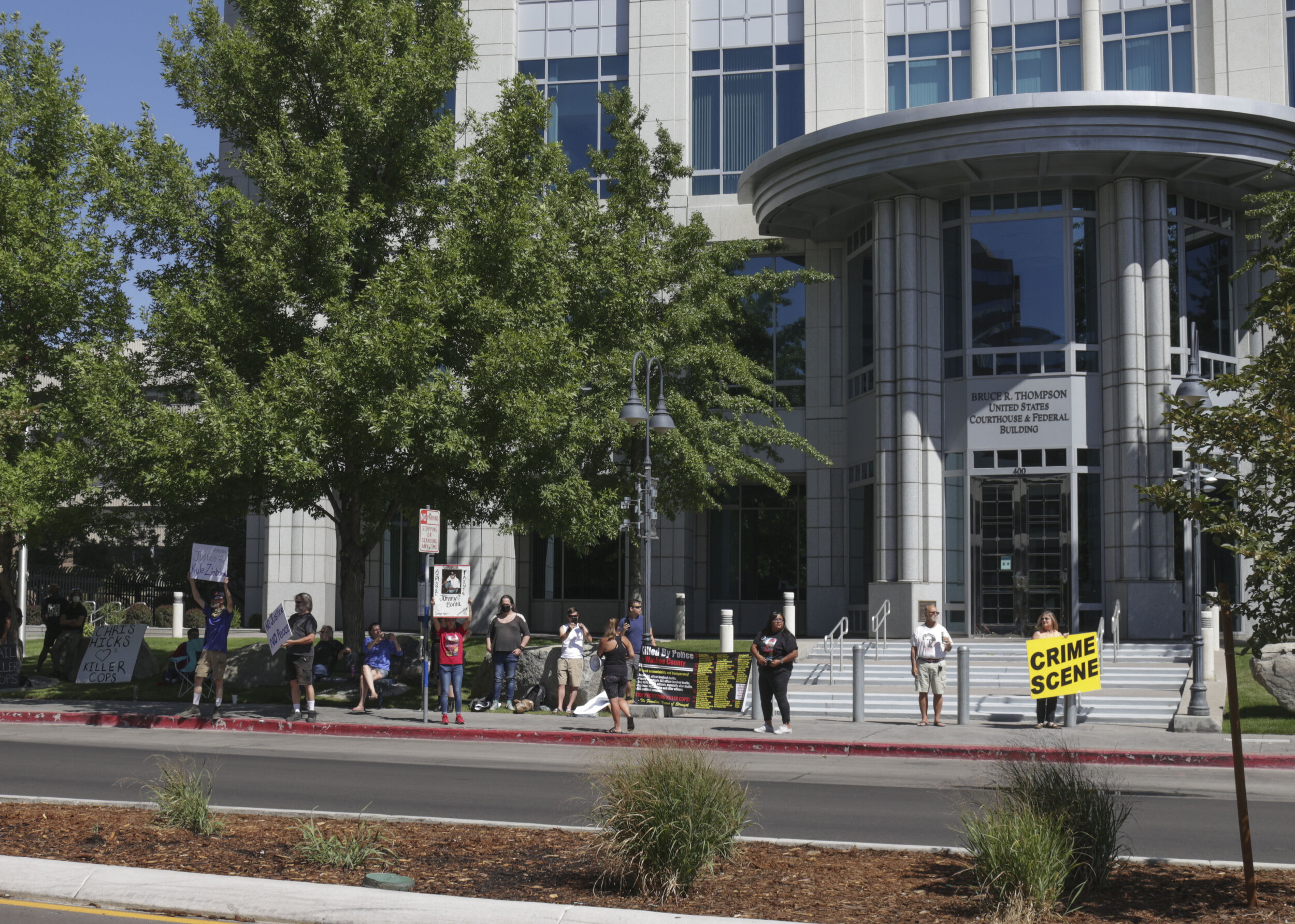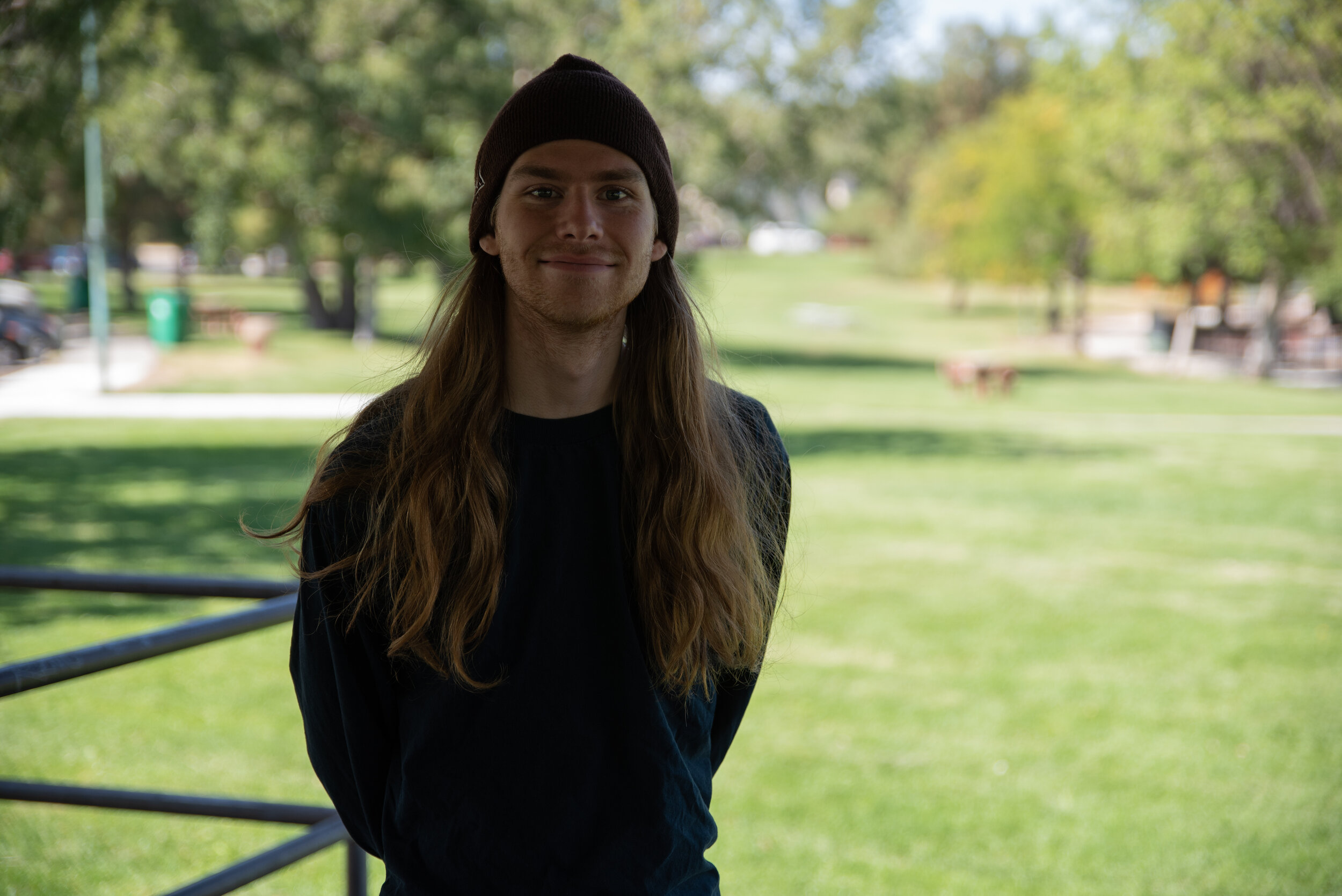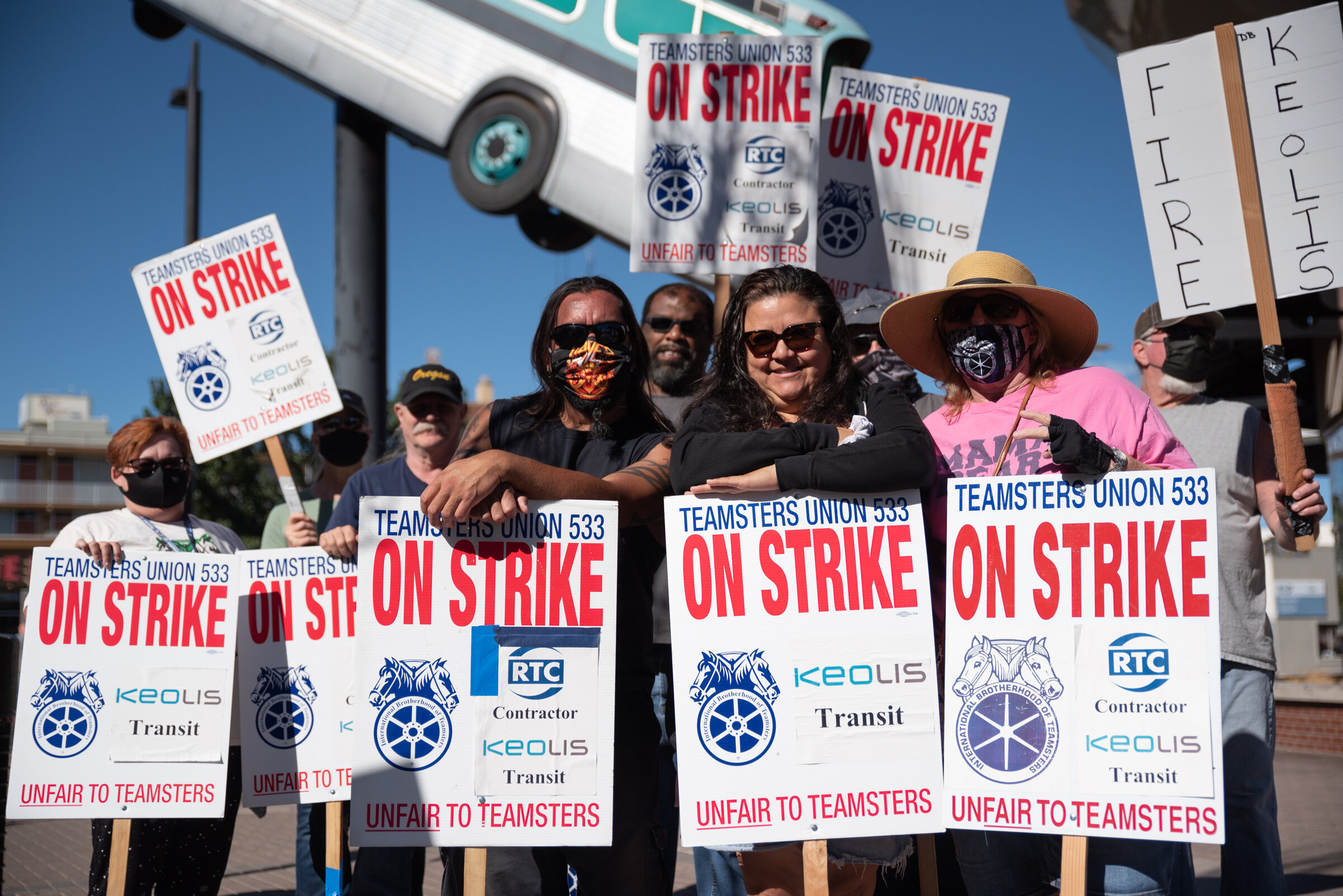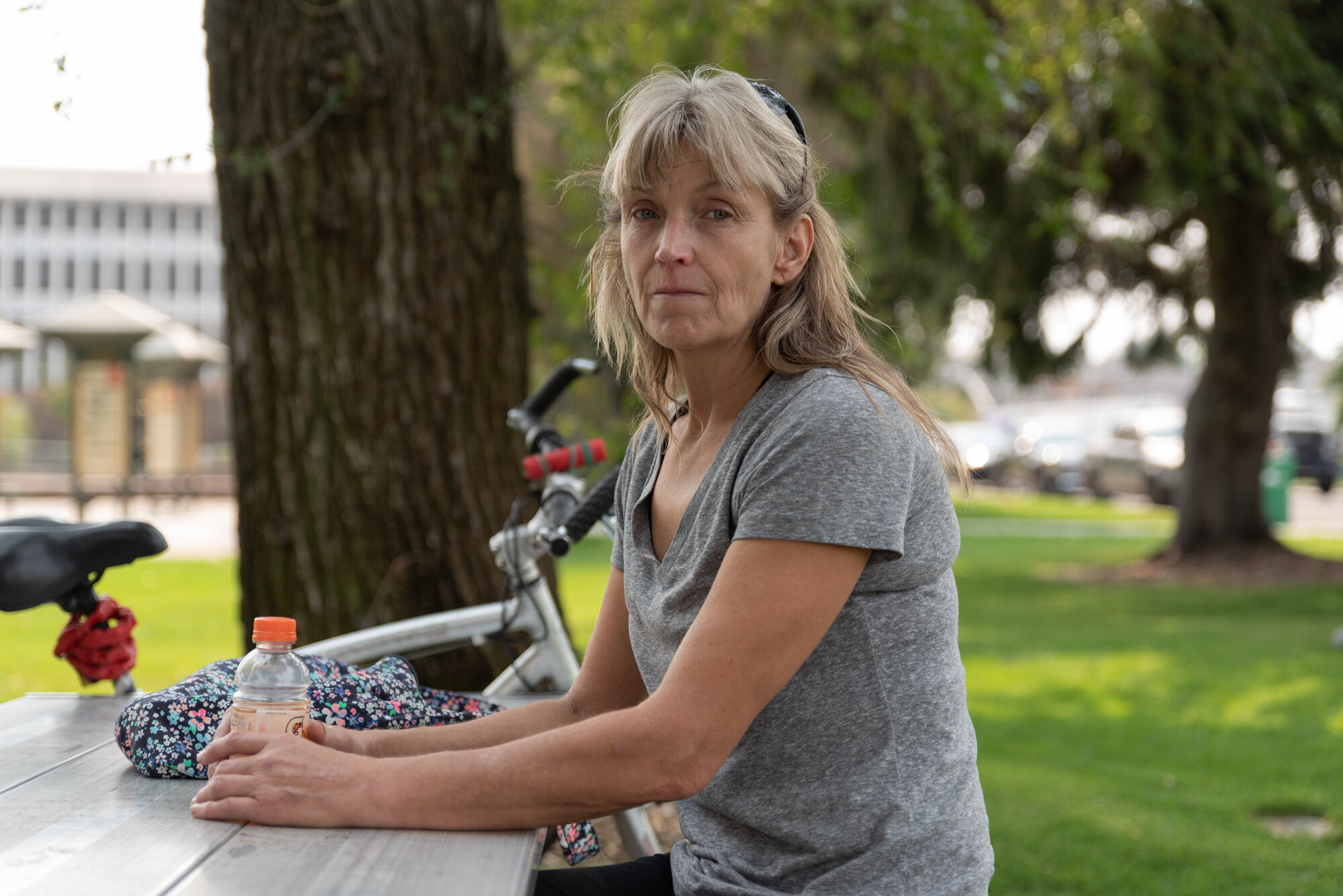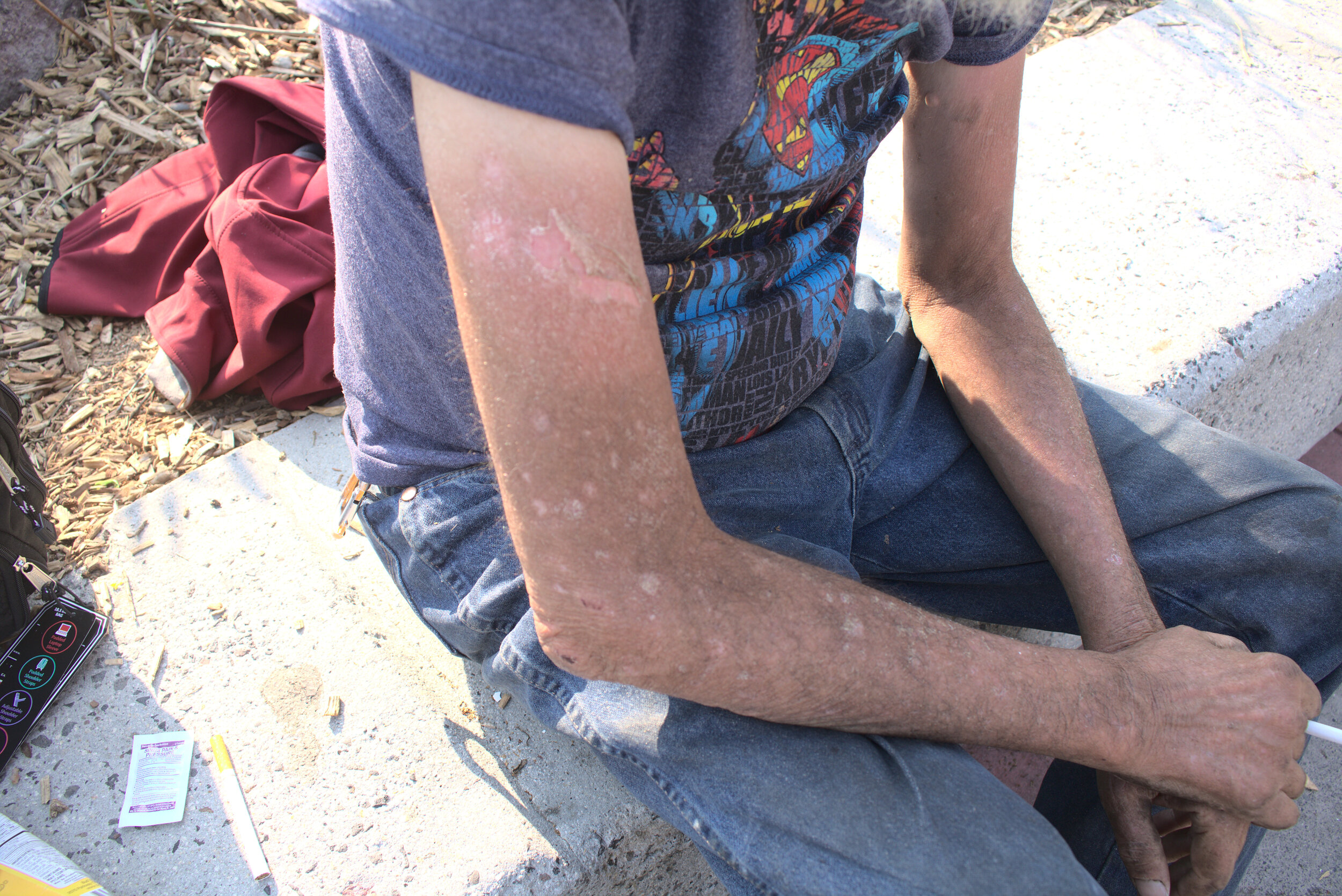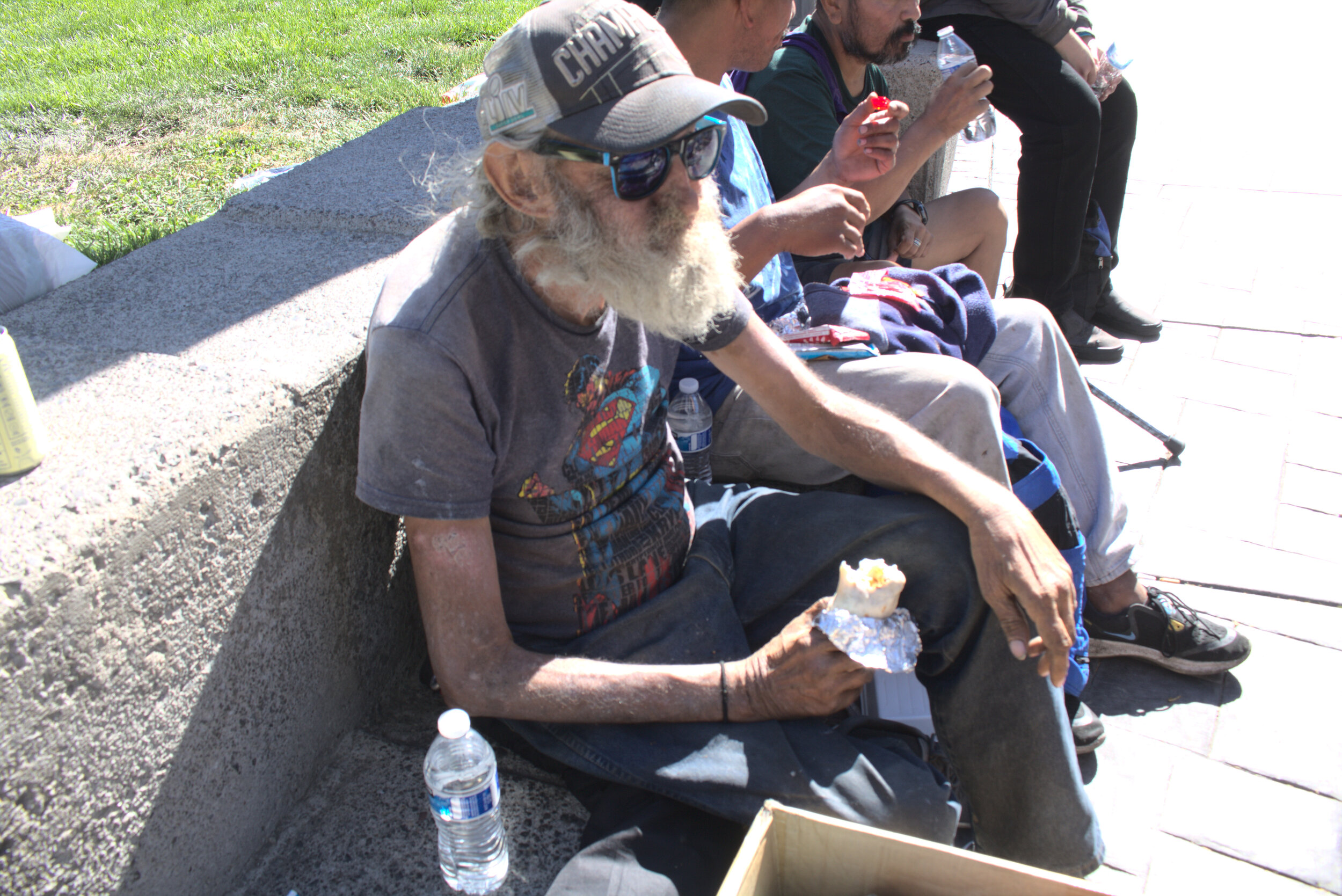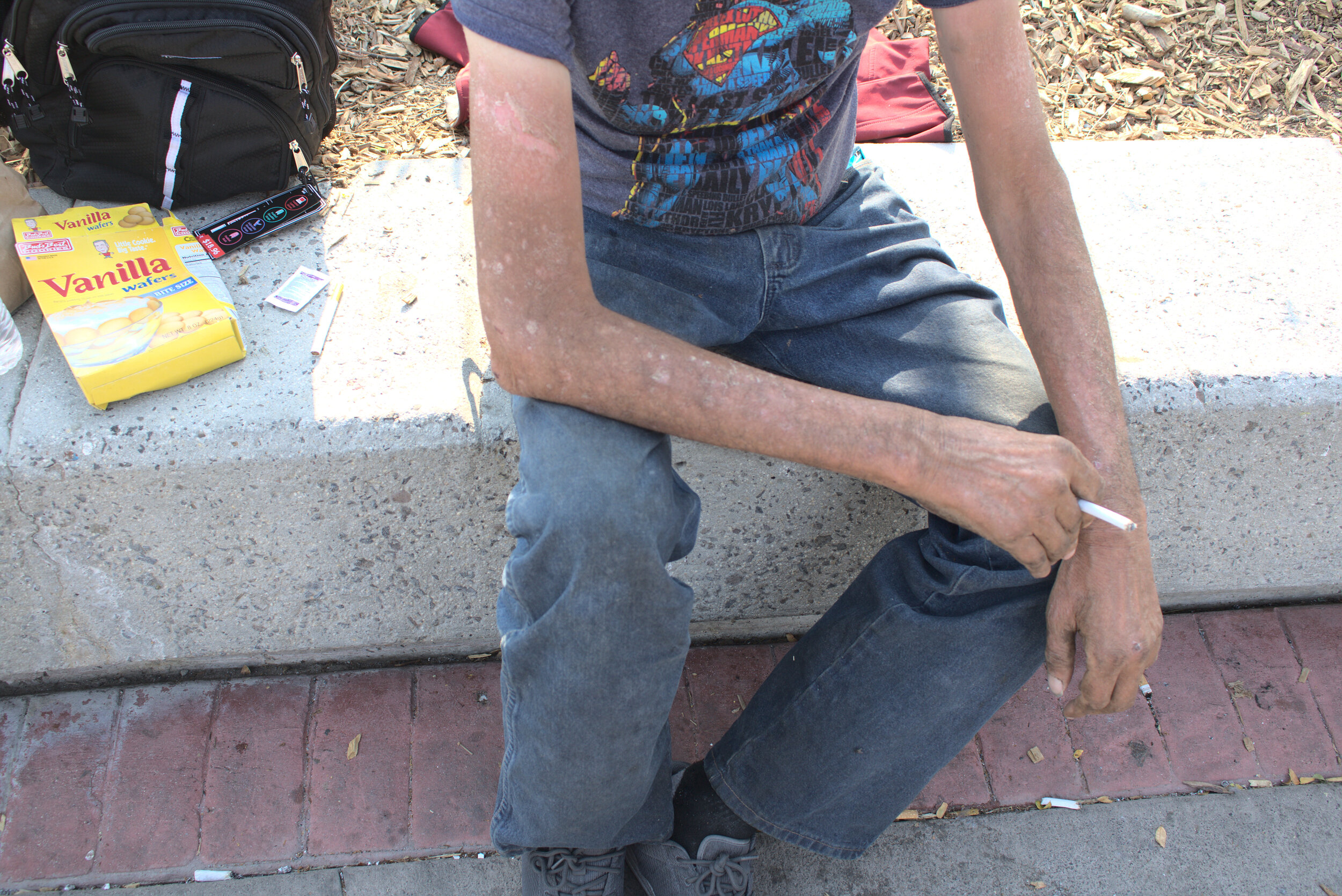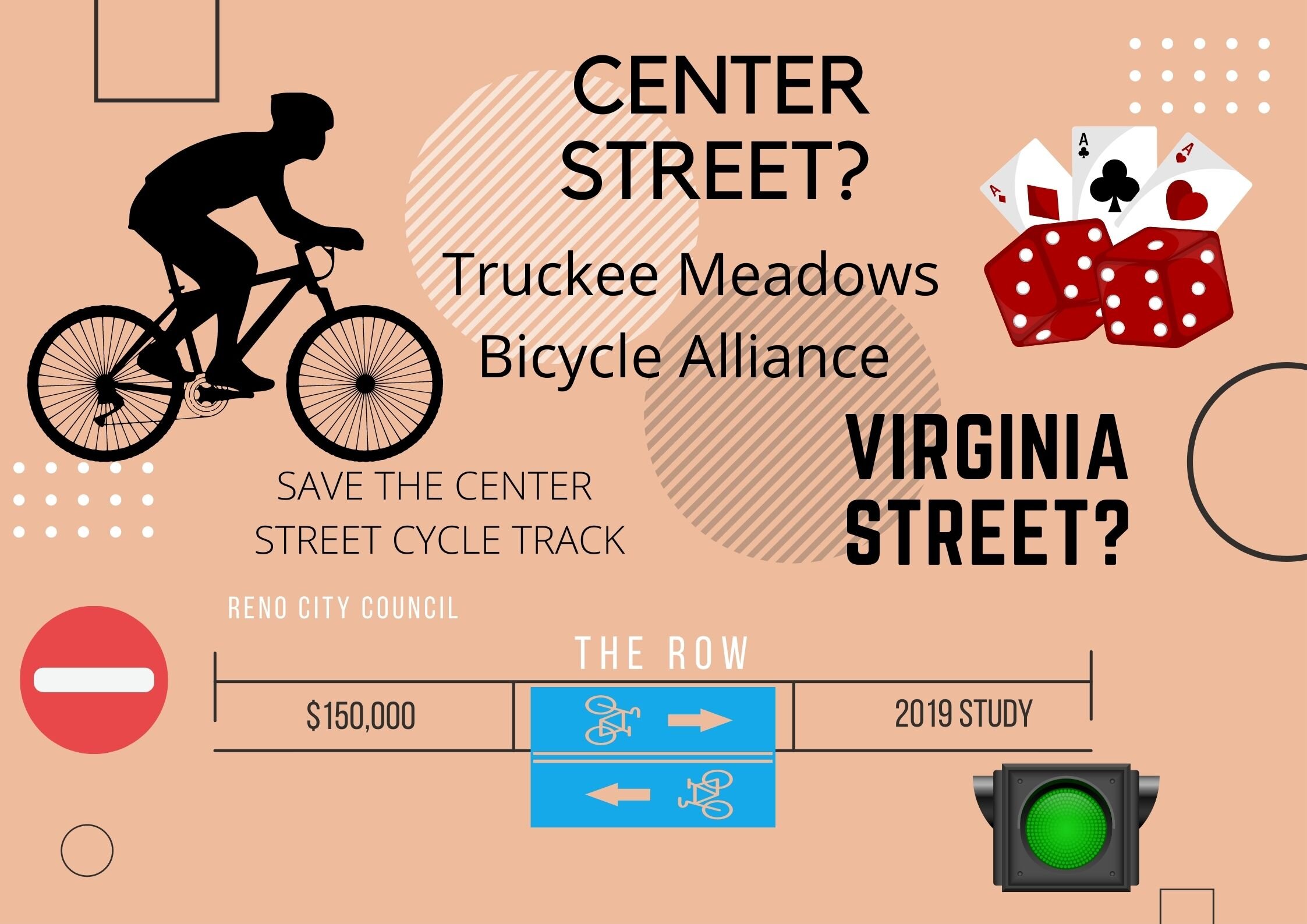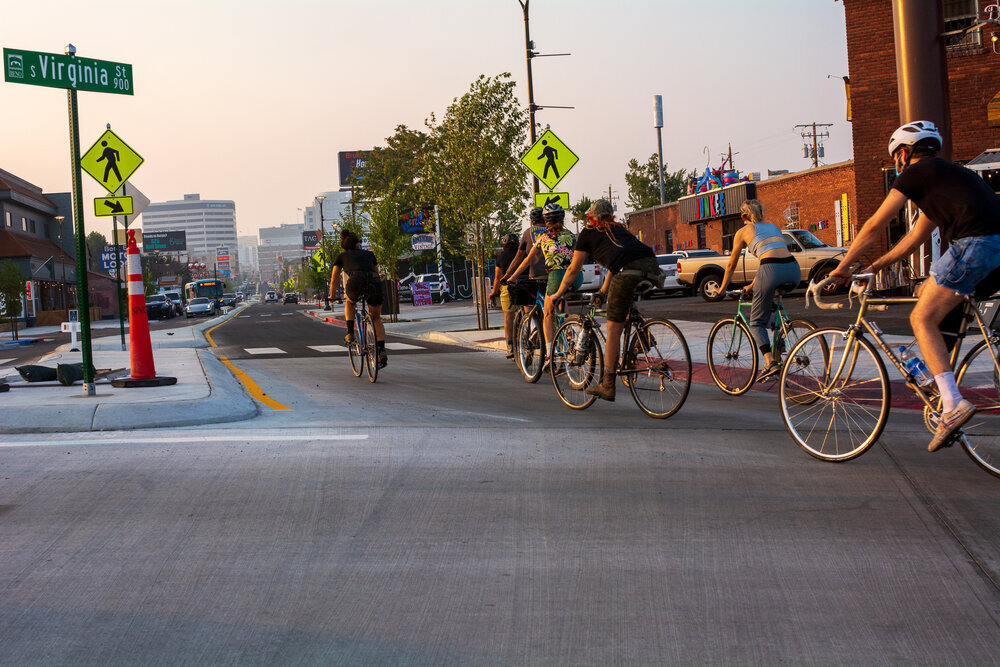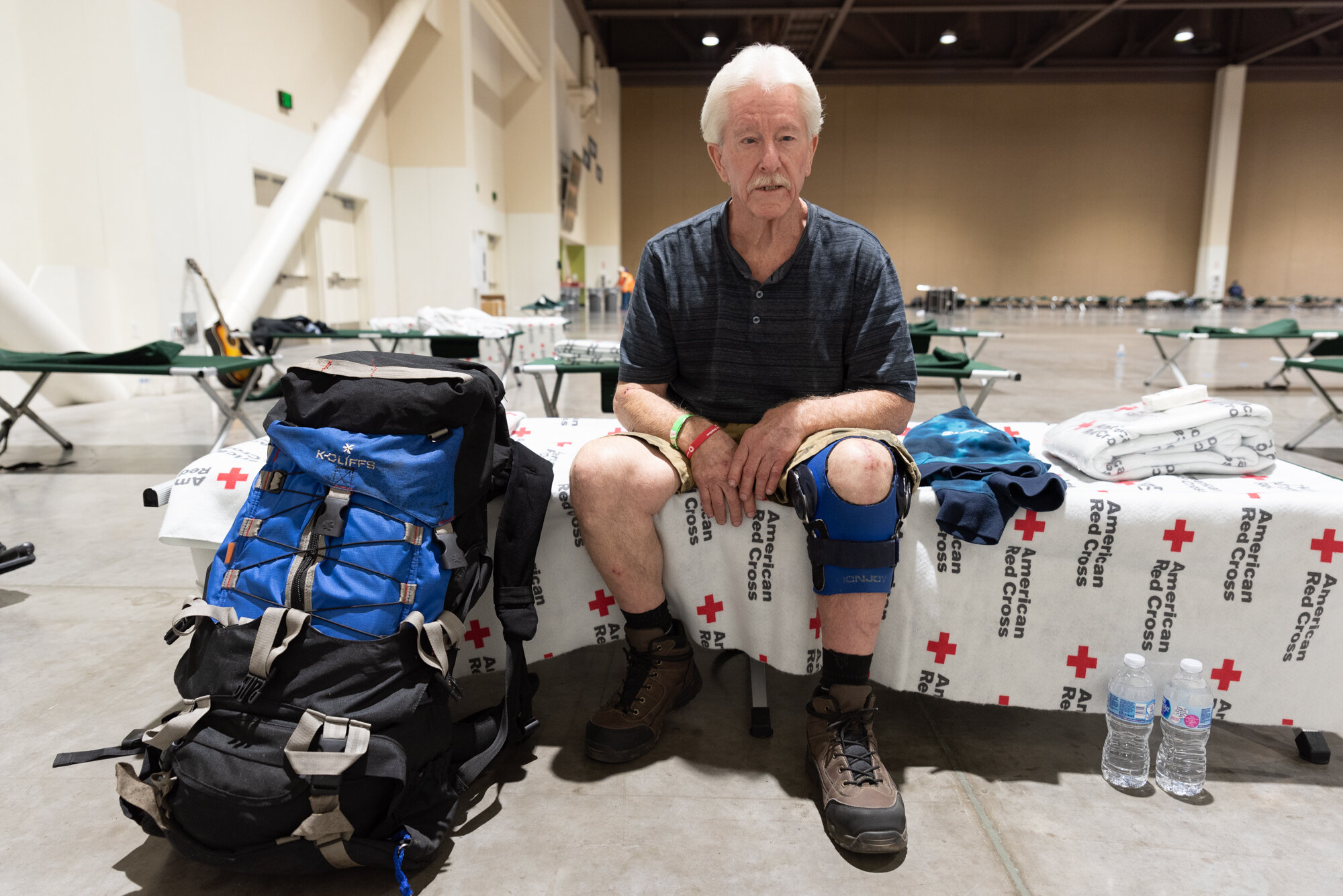Jane Dunn, 65, has been feeding her unhoused neighbors since she moved to Reno over 30 years ago. She started by taking leftover food to people sitting across the street from her house, but now she and the Reno Posse serve 100 meals every week to those in need.
The Reno Posse, started by Dunn over five years ago, started in her home kitchen, but has moved several times until finding its most recent home in the kitchen of the Reno Buddhist Center. Dinners that include an entree, sides, a home cooked dessert, snacks, juice and water are cooked, packed and sent out to be served downtown.
“Very often you miss the mark and you ask someone if they are hungry or if they want something to eat and they’re totally taken aback by that because they’ve never been in that situation,” Dunn said. “But they’re never offended. That’s the nice thing about this work. You don’t have to ask people if they’re homeless, you just have to ask them if they’re hungry.”
The Reno Posse is funded through donations and runs on volunteers, many who are senior citizens. Dunn says that with the COVID-19 pandemic and the increased sweeps of homeless camps it’s become harder and more expensive to serve meals. But Jane knows that the work is still important.
“Sometimes problems seem so big, you just don’t know where to start,” she said. “But I know that the simplest thing that people need to do everyday is eat.”
Reno Posse volunteers Rachel and Emily drove to all their regular spots including the Riverwalk, Wingfield Park and the Believe Plaza to hand out meals when I was with them. Photo and reporting by Catherine Schofield.
I was able to go out on a chilly Wednesday evening with two volunteers, Emily and Rebecca, to see what it was like serving with the Reno Posse.
We drove around downtown Reno looking for people who may want a hot meal. Emily would roll down her window at stoplights and in parks to ask anyone who walked by if they were hungry. Both Rebecca and Emily would give meals to anyone who wanted one and never asked about someone’s specific situation.
But both Emily and Dunn remarked how this work was never enough.
“We have a tremendous opportunity here to help humans, but it seems like we’re doing everything we can do to make people feel unwelcome,” Dunn said. “I think all people are worthy of equal respect and that’s not how people are treated if they’re homeless in this town.”
Dunn likes to think of this work as an exercise of gratitude for all that she has and for all that she can give to others.
